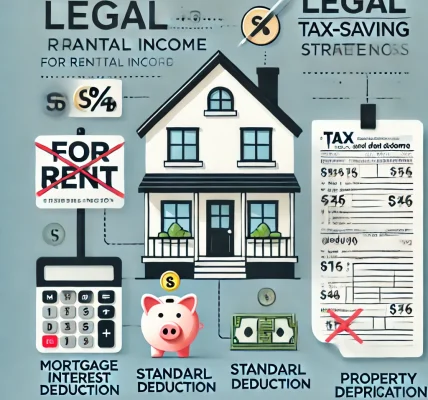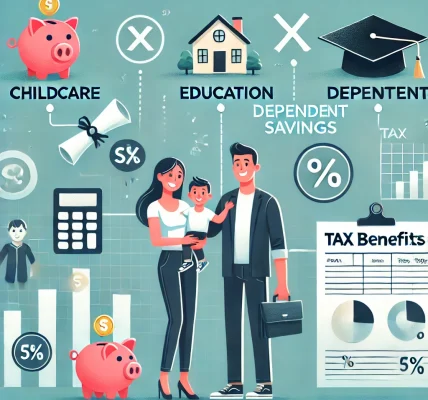Tax Benefits Seniors
PN
Tax Benefits for Senior Citizens: A Complete DIY Guide
Introduction
As senior citizens plan for their golden years, understanding tax benefits becomes crucial for financial stability. Governments worldwide recognize the need to support seniors with various tax exemptions, deductions, and rebates. This guide provides a detailed, DIY-friendly overview of tax benefits for senior citizens, ensuring they can maximize savings without any legal complications.
Who Qualifies as a Senior Citizen for Tax Benefits?
Before exploring tax benefits, it’s essential to determine eligibility. In many countries, individuals aged 60 years and above are considered senior citizens, while those above 80 years may qualify as super senior citizens. However, definitions may vary by jurisdiction, so it’s advisable to check with local tax authorities.
Key Tax Benefits for Senior Citizens
1. Higher Basic Exemption Limit
Senior citizens often enjoy a higher basic exemption limit, reducing their taxable income. For instance:
- In India, the exemption limit for senior citizens is higher than for individuals below 60 years.
- The U.S. provides an additional standard deduction for individuals aged 65 and above.
2. Tax-Free Social Security Benefits (Applicable in Some Countries)
In some jurisdictions, senior citizens may receive social security benefits that are either completely or partially tax-free. For example:
- In the U.S., Social Security benefits are only taxed if total income exceeds a certain threshold.
- Some countries do not tax pension income at all.
3. Deductions on Medical Expenses
Healthcare costs rise with age, making tax deductions on medical expenses valuable. Benefits include:
- Higher Deduction Limits: Many tax laws allow seniors to claim higher deductions for medical insurance premiums and expenses.
- Preventive Health Check-up Benefits: Certain expenses on annual check-ups may also be deductible.
- Exemptions on Critical Illness Treatments: Some tax codes provide additional exemptions for treatments related to critical illnesses.
4. No Advance Tax Requirement
In some tax systems, senior citizens earning income only from pensions, savings, or fixed deposits are exempt from paying advance tax. This exemption reduces the compliance burden and allows for easier financial planning.
5. Higher Deduction for Interest Income
Many governments provide special tax relief on interest earned from deposits in banks and post offices. For example:
- India offers a deduction under Section 80TTB on interest income from savings accounts, fixed deposits, and post office deposits.
- Some countries provide interest exemptions on government bonds held by senior citizens.
6. Exemptions on Capital Gains Tax
Senior citizens investing in long-term assets often receive exemptions on capital gains tax if they reinvest the proceeds in specified financial instruments, such as:
- Government bonds
- Senior citizen savings schemes
- Retirement-specific investment plans
7. Reverse Mortgage Benefits (Country-Specific)
Some tax laws favor reverse mortgage schemes, allowing senior citizens to receive tax-free periodic payments while retaining ownership of their homes. In many cases, the lump sum received under such arrangements is not treated as taxable income.
8. Tax Rebates and Credits
Many countries offer tax rebates or credits for senior citizens, reducing their overall tax liability. These rebates often apply to individuals with lower annual income, helping them retain more post-tax income.
DIY Tax Planning for Senior Citizens
Step 1: Identify Applicable Tax Benefits
Start by reviewing local tax regulations to determine which benefits apply based on age, income, and financial situation.
Step 2: Maintain Proper Documentation
Keep records of:
- Medical bills and insurance premiums
- Investment and deposit statements
- Pension receipts
- Tax-saving investments (if applicable)
Step 3: Utilize Tax-Saving Investment Options
Opt for senior citizen savings schemes, tax-free bonds, and other investments that offer better post-tax returns.
Step 4: Consult a Tax Advisor (If Necessary)
While DIY tax planning is effective, consulting a tax expert can help avoid legal complications and maximize benefits.
Conclusion
Senior citizens have numerous tax benefits designed to ease their financial burden. Understanding and utilizing these benefits effectively can lead to significant savings. With proper documentation, strategic investments, and awareness of tax laws, seniors can ensure a financially secure future. Always refer to official government websites or consult tax professionals to remain compliant with evolving tax regulations.




